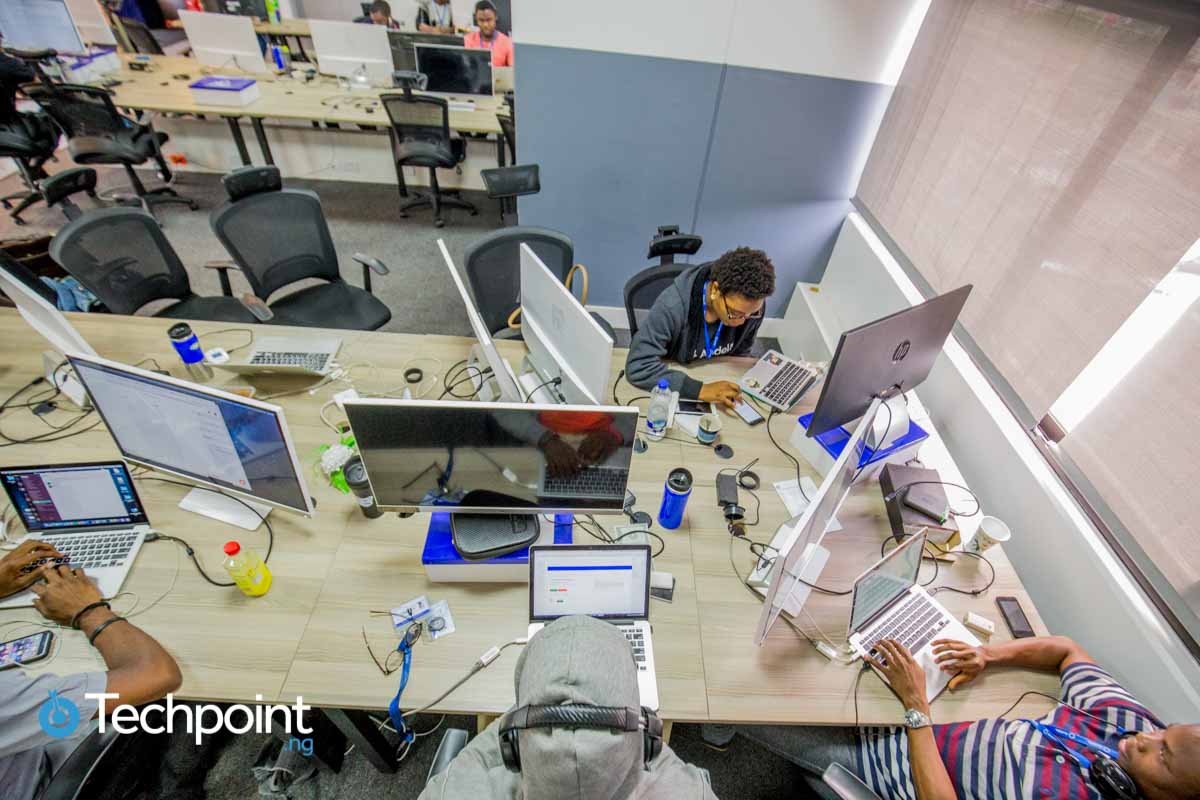Last week, Andela announced its $40 million Series C funding round — possibly the largest venture round in Africa ever led by a group of African investors.
This is coming after the talent accelerator already raised over $40 million in its Series A and Series B combined. One thing this new funding suggests is that there is an increasing trust in Andela’s model of training and exporting professional software engineers from the African region.
But, amidst the fanfare, could it be a fair question to ask if Andela has indeed proven the model beyond a reasonable doubt?
When it launched in 2014, the plan was to empower as many as 100,000 African youths over a 10-year period. But according to the press statement, “Andela has hired 500 developers to date — the top 0.7% of more than 70,000 applicants from across the continent.”
As an outsider, it’s difficult to say if the above connotes that not everyone Andela trains ends up hired. But as an insider clarifies, Andela recruits before training but not all trainees end up as fellows (what Andela calls its resident developers).
Furthermore, our source reveals that, “Andela has a total of around 700 staff across its various offices, including its 500 developers/fellows”
So with just 500 developers in its current rank how competitive is Andela globally?
Closing the STC gap
As global demand for software talent continues to rise, platforms matching developer talent with clients are emerging, seemingly out of nowhere.
Launching in the East Africa last year was Gebeya, an Ethiopian-based IT academy training hub which aims to graduate 5,000 students over the next five years. After expanding to Kenya and Silicon Valley early this year, it now has a presence in the UK, where, according to Accenture, there is a need for 745,000 more workers with digital skills this year alone.
Gebeya is the first African-based platform of its kind to launch in the UK, ahead of its US-based, Nigerian-founded competitor Andela, CB Insights reports.
Granted, majority of Andela’s clients are outside Africa. And what is perceived to be a small number of developers might be down to the need to offer their clients top-notch services (seeing it has a rigorous process of selecting applicants). But how long before pressure from continued patronage or competition forces it to crack?
Ironically, this concern just might reveal the actual gap(s) Andela intends to fill with its new funding in order to improve competitiveness.
“Andela is always recruiting for Senior Technical Consultants (STCs),” our source affirms.
STCs are essentially talent that work with Andela partners as senior engineers and team leads. At other times, they conduct the training (physically or virtually) for new Andela recruits. A typical example of such is Celestine Omin, an ex-Konga engineer. But while they are in high demand because of their skills, it appears STCs are scarce.
According to our source, “Andela fellows are majorly juniors, and there are only a few fellows who are senior level engineers.”
Now that Andela is adjusting to a more realistic target of doubling its developer base from 500 to 1000, no doubt it will require the skills of these STCs to help execute this plan. Once that is achieved, the company would now look to move on to the next phase, which is:
Building a face for the business
What really comes to mind when people think of Andela is nothing more than a talent accelerator. The narrative of a business that exports software development to big companies outside the shores of Africa is often suppressed.
This one-sided reputation, it would seem, is impacting the company. This perhaps explains why Andela is quietly seeking to recruit in various departments — especially finance, sales, and marketing — at the Lagos, New York and Nairobi offices.
Apparently, Andela is about to embrace the fact that it is a business first. Combining that attribute with the plans of increasing its talent pool, there just might be a lot to admire about this one company.






